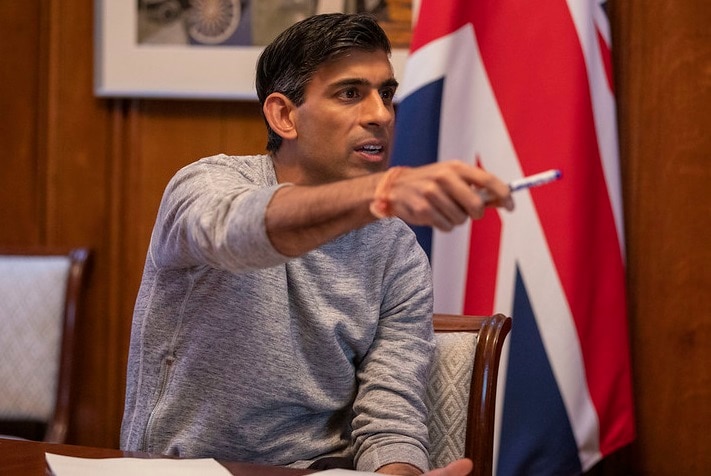A new dawn of cryptocurrency is forcing us to re-evaluate our faith in our institutions of state

Talking about a revolution, as Tracy Chapman reminded us, isn’t new. For many years, many have. But we only ever know we’ve lived through when we look back. Today, the writing is on the walls for a moment of fundamental change.
Over the last week we’ve seen Bitcoin and Ethereum hit historic highs while take up for other forms of financial assets continues to grow. We’re seeing supply crunches and bonuses paid to entry level jobs in fast-food outlets in the US, we’re seeing a budget in the UK that feels more like Attlee than Churchill.
The world is changing.
This isn’t confined to Britain, but in Westminster, at least, we are betting on the power of the state to ride out the storm. Others are choosing to bet on technology. Who wins the gamble will determine the shape of the world.
This isn’t just a cock fight where size alone matters. When the Netherlands and the UK dominated global trade, they weren’t the biggest – they were faster and better at mastering the technology available to achieve their ends.
Today, Estonia and Singapore are just as much rivals to us as France and Germany.
They don’t look small when you measure the speed of their innovation because people can opt into their systems—and out of ours—online.
That’s the competition we’re now in. While the focus for many has been on digital currencies, many of which are, no doubt, Ponzi schemes, the competition is also in how countries do contracts, how companies do dispute resolution and how individuals innovate. If we’re going to guarantee the prosperity – and growth – we need, that’s the ultimate prize.
But governments around the world are betting on the state. Just as the Chancellor of the Exchequer, Rishi Sunak announced the highest level of sustained public spending since Harold Wilson and hiked the tax burden to the highest point in a generation, others around the world are doing the same.
From the US to China, nations are pouring money into their economies as we come out of the Covid-19 pandemic. Some even share the same slogan; build back better is constantly on the lips of both President Biden and Prime Minister Johnson, perhaps Mr Meatloaf can explain who took the words out of whose mouth and when.
Under the shadow of a debt burden of over 100 percent of our GDP, global supply chain problems, energy price rises and labour shortages in every industrialised nation, people are understandably nervous.
They’re looking at the extraordinary levels of cash stimulating the economy and wondering whether this will really result in the gentle rise in real wealth we’re all promised.
Or could it, in fact, see savings eaten away by inflation?
The Treasury tells us that’s not going to happen. But since 2008 faith in our financial institutions has faltered. Those dark suited money movers were wrong then, they could be again.
Are we seeing a return to the spirals of wages chasing prices that marked the 1970s?
Back then, we didn’t have a way out. Exchange controls and currency monopolies meant you couldn’t avoid the interest rates that left many worse off despite pay rises. Today you do.
Going online isn’t just about shopping, it’s an entire economic infrastructure that’s growing faster every day.
The surge of people opting into crypto currencies isn’t just a bet on future tech, but a bet against the current way we run the world.That should leave those of us with homes and pensions nervous.
We’re completely invested in our existing order so we can’t afford it to fall behind.
These are still early days but as Ms Chapman puts it, talking about a revolution sounds like a whisper. Perhaps that’s what we’re hearing now.